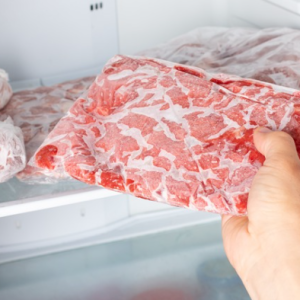While many people embrace cozy sweaters and warm drinks during colder seasons, some individuals experience a perpetual feeling of coldness that goes beyond typical comfort levels. If you find yourself constantly reaching for extra layers and shivering even when others are comfortable, there may be underlying reasons behind your persistent coldness. In this article, we delve into the potential factors that contribute to always feeling cold and explore strategies to address this chilly issue.
Metabolism Matters
One of the primary factors influencing our body temperature is metabolism—the rate at which our bodies convert food into energy. Individuals with a slower metabolism tend to generate less internal heat, leading to a consistent feeling of coldness. Factors such as age, genetics, and hormonal imbalances can influence metabolism and contribute to feeling cold.
Thyroid Troubles
The thyroid gland plays a crucial role in regulating metabolism and body temperature. Conditions like hypothyroidism, where the thyroid gland is underactive, can lead to a decrease in body temperature and result in a constant feeling of coldness. Other symptoms of hypothyroidism include fatigue, weight gain, and dry skin.
Iron Deficiency Anemia
Iron deficiency anemia occurs when the body lacks sufficient iron to produce hemoglobin—a protein that carries oxygen to tissues. Reduced oxygen circulation can lead to feeling cold, along with symptoms like fatigue, weakness, and pale skin. Consuming iron-rich foods or taking supplements under medical guidance can help alleviate this issue.
Poor Circulation
Inadequate blood circulation can also contribute to feeling cold. Conditions like Raynaud’s disease, which causes blood vessels to narrow in response to cold or stress, can lead to cold fingers and toes. Engaging in regular physical activity, staying hydrated, and managing stress may help improve circulation.
Low Body Fat Percentage
Body fat acts as insulation, helping to maintain body heat. Individuals with a naturally low body fat percentage may experience a greater loss of heat and feel cold more easily. While maintaining a healthy weight is important, extreme weight loss or restrictive diets can exacerbate the feeling of coldness.
Underlying Medical Conditions
Certain medical conditions, such as diabetes, anemia, and autoimmune disorders, can disrupt the body’s temperature regulation mechanisms and contribute to feeling cold. If persistent coldness is accompanied by other symptoms, seeking medical attention is advisable.
Lifestyle and Habits
Lifestyle factors can also play a role in feeling cold. Smoking, for instance, can narrow blood vessels and reduce circulation, leading to cold extremities. Additionally, inadequate clothing or exposure to cold environments without proper protection can contribute to feeling cold.
Psychological Factors
Psychological factors, such as anxiety and stress, can trigger physical responses that make you feel cold. The body’s “fight or flight” response can lead to constriction of blood vessels and a drop in body temperature. Practicing relaxation techniques and managing stress may help alleviate this effect.
Strategies for Comfort
If you find yourself constantly feeling cold, there are steps you can take to improve your comfort:
- Layer Up: Wear multiple layers of clothing to trap body heat and create insulation.
- Stay Active: Engage in regular physical activity to boost metabolism and circulation.
- Stay Hydrated: Drink enough water to maintain proper circulation and bodily functions.
- Warm Foods: Consume warm beverages and foods to raise body temperature.
- Warm Environment: Keep your living and workspace comfortably warm.
- Consult a Professional: If coldness persists or is accompanied by other symptoms, consult a healthcare provider to rule out underlying medical conditions.
Navigating the Chill
In conclusion, always feeling cold can be influenced by a combination of factors, from metabolism and medical conditions to lifestyle and habits. While some causes may require medical attention and intervention, incorporating healthy lifestyle choices and staying mindful of your body’s signals can help you better navigate the perpetual chill. Remember, understanding your body’s unique needs and seeking appropriate guidance are essential steps toward achieving optimal comfort and well-being.









